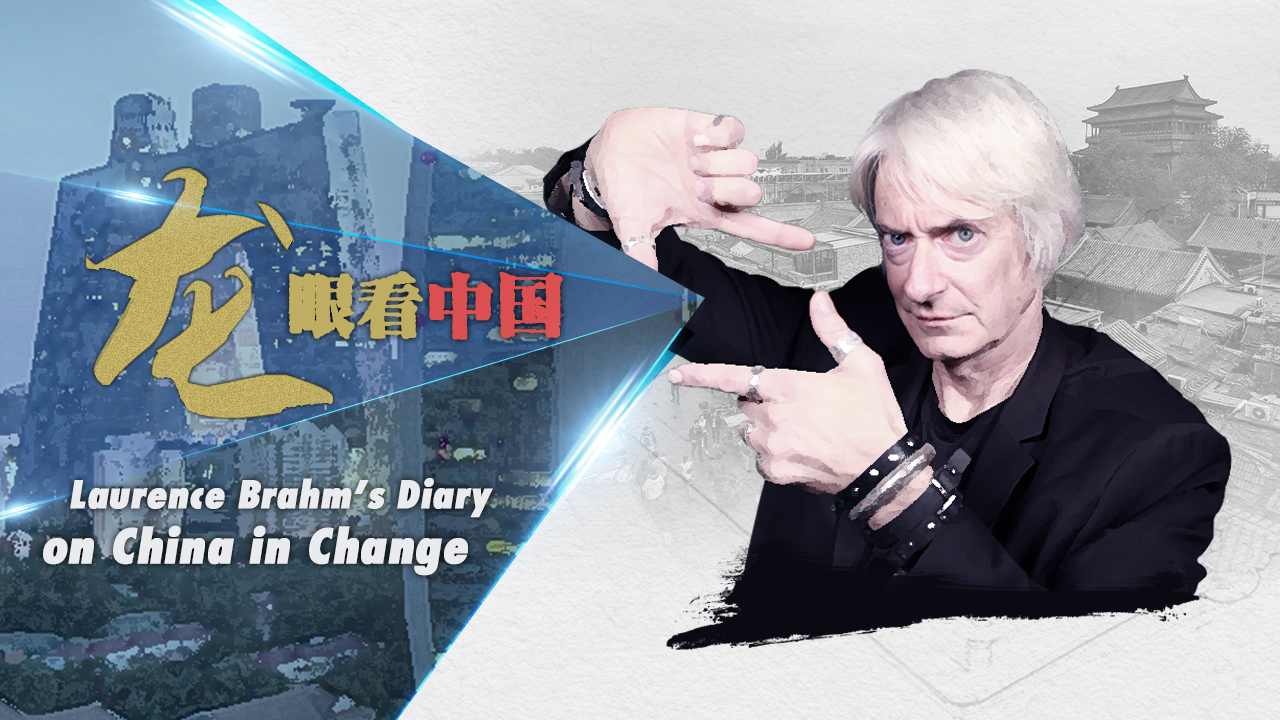
Opinions
08:47, 18-Dec-2018
China supports global integration amid rising populism
Updated
08:45, 21-Dec-2018
Laurence Brahm
04:48

Editor's Note: As a lawyer, policy adviser, filmmaker and social enterprise pioneer, Laurence Brahm is not only a keen observer but an active participant in China's reform and opening-up. "Laurence Brahm's Diary on China in Change" is a special series dissecting the colossal changes Brahm has witnessed in his 37-year stay in China. In the sixth episode, Brahm shares his views with CGTN on China's efforts in global integration.
CGTN: You said in your article that while Beijing is now promoting global market integration, Washington is ironically rejecting it. Times have really changed. From your perspective, what has contributed to such a change?
Brahm: First of all, we have to understand what the term "globalization" means. Globalization, as a movement in the 1990s, was not about global connectivity and integration. It was about establishing protocols and systems that would allow Western corporations, primarily the American ones, to dominate and monopolize markets. It was the globalization of Americanization.
Now, we talk about global connectivity and integration of systems for transport and communication. That's a completely different idea. And that's what China is promoting right now. China, through the Belt and Road Initiative (BRI), is trying to share its experience of developing infrastructure, smart infrastructure, ecological infrastructure, to be able to connect people and places.
And this is beginning again, a process of non-globalization, as we knew it, but global integration, which is allowing for a shared prosperity or a shared destiny of mankind.
CGTN: Why is Trump launching a trade war against China in this era of globalization?
Brahm: What's happening is that Donald Trump is trying to assert an American superiority. And he's doing it by first having an economic war against other countries. This is very short-term. It's very much built on the concept that "America's First." The America First movement actually goes back before WWII. It is a movement that is very much about alienating outside ideas, visions, and cultures.
So this is not just about trade. This is not about the idea that Donald Trump is a smart businessman and will cut a deal. This is about ideology, political ideology. And what China is talking about now is pragmatism, how people can do business, how they can do trade, how we can actually use business and finance to reduce carbon on our planet and create new ecological businesses that can be transforming the nature of energy and our use of energy and consumption in a way just like Internet transformed the way people communicate and the way information is used and transferred.
This is about long-term vision versus short-term interests. It's about trying to think in terms of the common shared destiny of mankind. Because we are living in an increasingly integrated, synergistic matrix on our planet in which what happens in one part of the world affects another. It's not about one nation first, whether that's America or any other nation.
CGTN: What are the impacts of globalization on China's cultural heritage and identity?
Brahm: China's cultural heritage and identity is something which is a composition of over 5,000 years of global integration. Chinese ideas were going global and global ideas were coming here. Globalization is not something new. Global connectivity is something which is a deep part of China's history and past. And so, the projection of the Belt and Road (Initiative), is taking that deeply rooted past and projecting it into a totally new future.
CGTN: How to promote cultural diversity while protecting traditional culture in the process of globalization?
Brahm: Traditional culture contains cultural diversity. Through the protection of your culture, you are allowing an opportunity to respect the diversity of others. If we look at the Silk Road, the Silk Road was traditionally a combination or a network, bringing ideas from the Middle East to China, from China to the Middle East.
Protection of culture is at the core of diversity. By protecting and respecting the culture, you don't marginalize people, you bring them together in a form of mutual respect. And in that, we can respect the diversity. And with diversity and complexity, we have a far richer planet.
Reporter: Liu Jianxi
Creative planning: Liu Jianxi
Videographers: Wang Yucheng, Zheng Xiaotian
Video editors: Zhong Jianli, Xu Qianyun
Producer: Wei Wei
Supervisor: Zhang Shilei
(If you want to contribute and have specific expertise, please contact us at opinions@cgtn.com.)

SITEMAP
Copyright © 2018 CGTN. Beijing ICP prepared NO.16065310-3
Copyright © 2018 CGTN. Beijing ICP prepared NO.16065310-3